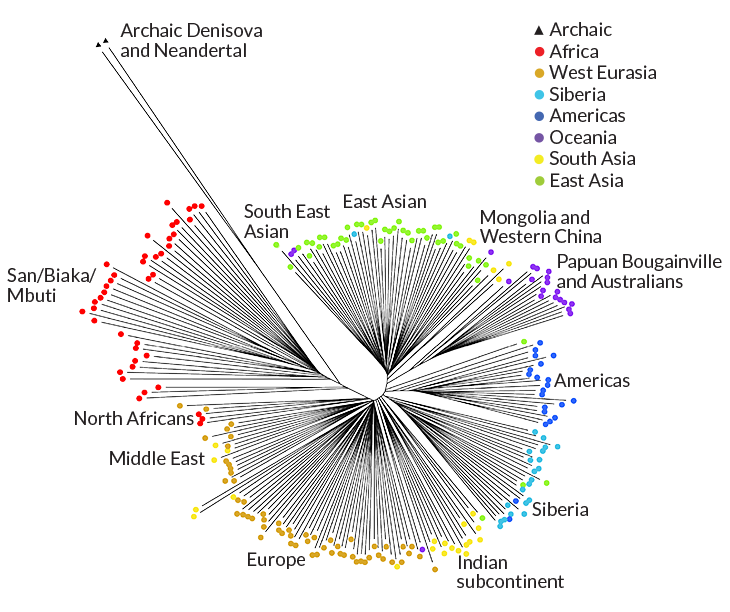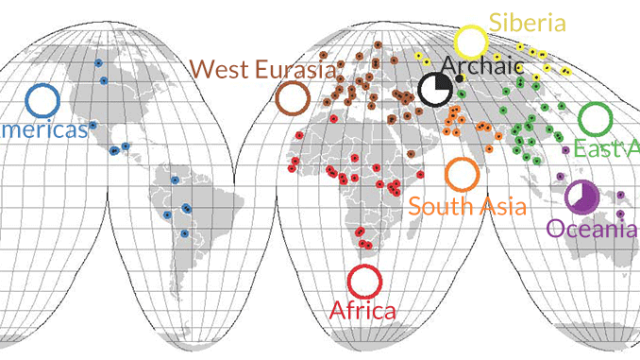Our ancestors weren’t blessed with smartphones, WiFi and Amazon Prime, but for what it’s worth they did have a little extra DNA. According to a study published today in Science, Homo sapiens have shed about 40.7 million base pairs of DNA since migrating out of Africa nearly two million years ago.
The human genome’s 3 billion base pairs — chemicals represented by the letters A,T,G, and C — are often likened to a set of blueprints, or an instruction book. But this analogy doesn’t quite do justice to the fact that evolution has made a crazy mess of our autobiography. Pieces of the human genome are constantly being rewritten, duplicated, and crossed out for no good reason. You’d be better off imagining a book that a four-year-old with scissors and a copy machine got his hands on.
Nevertheless, brave scientists are trying to make sense of the human genome to reconstruct our evolutionary history. By comparing copies of the genome between populations, we can start to piece together how human populations have evolved and diverged over time.

DNA deletions were used to trace common relationships among groups of humans. Longer lines indicate groups with more deletions. Image credit: P. Sudmandt et al 2015, via Science News
That’s exactly what the authors of the new study did, by sequencing the genomes of 236 individuals from 125 distinct populations. Their results showed that our ancestors shed about 15.8 million base pairs of DNA before leaving Africa. As populations spread across Earth’s continents, they jettisoned additional chunks of DNA here and there. But certain populations have also been gaining DNA, mostly through duplication events where portions of the genetic code were accidentally copied and passed on.
Does the net loss of DNA over time really matter? After all, despite what you may have learned on Star Trek, we’re not about to de-evolve into a clan of eyeless fish. Maybe evolution is just trimming the fat? Could be! This is the first time scientists have comprehensively documented the loss (and gain) of large chunks of DNA, and we’ve got a long ways to go before we can say what it all means.
But scientists suspect that DNA loss and duplication events could be important evolutionary driving forces. For instance, some groups of people have up to six copies of CLPS genes, which encode pancreatic enzymes that may reduce blood sugar levels. And certain populations in Africa carry gene duplications that may protect against sleeping sickness caused by trypanosome parasites. Scientists are now flagging these interesting duplications for further study.
If there’s one takeaway, it’s that despite all the information at our fingertips, the very foundations of our biology are still a utter mystery.
[read the full scientific paper here H/T Science News]
Top image: Geographic location of populations sampled in the study, via Peter H. Sudmant
